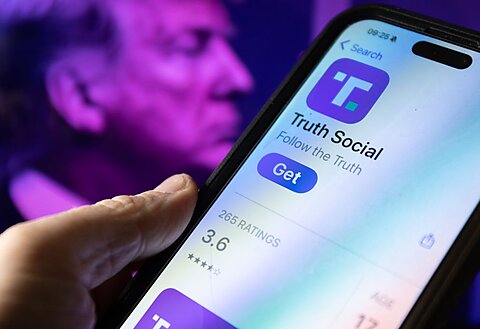President Trump took to Truth Social to “put all Countries with Digital Taxes, Legislation, Rules, or Regulations, on notice that unless these discriminatory actions are removed, I, as President of the United States, will impose substantial additional Tariffs on that Country’s Exports to the U.S.A., and institute Export restrictions on our Highly Protected Technology and Chips. America, and American Technology Companies, are neither the “piggy bank” nor the “doormat” of the World any longer.”
At the same time, the State Department is engaging in a lobbying campaign against the European Union’s technology regulations, most notably the Digital Services Act (DSA) but likely also including related rules under the Digital Markets Act (DMA) and the EU AI Act. Recent reporting also suggests that the State Department is contemplating sanctions for European officials enforcing the DSA.
There’s a lot going on here, so let’s start with the positives. President Trump is right to condemn “Digital Taxes, Digital Services Legislation, and Digital Markets Regulations” as being “designed to harm, or discriminate against, American Technology.” The DSA, DMA, AI Act, and other European rules on technology reflect a far more restrictive approach to online expression and innovation. They create burdensome obligations and requirements on how technology companies develop, operate, and moderate their products.
For example, DSA creates obligations for companies to have “reasonable, proportionate, and effective mitigation measures, tailored to the specific systemic risks” identified by the EU. This may read like requiring standard-issue content moderation, but the problem is that what is “reasonable, proportionate, and effective” is entirely in the hands of the EU Commission. Companies really don’t know if they’ve done a good enough job until the EU tells them they haven’t.
So companies are incentivized to overmoderate and overremove speech for fear of being punished. Even before the DSA, Europe was pushing platforms to aggressively remove speech through laws like Germany’s NetzDG Act. Research by the Future of Free Speech analyzed removals of content in various European countries and found massive removals of legal speech, with 99.7 percent of removed German Facebook comments being excised despite being legally permissible, with 83 percent being content labeled as general opinions like “there is no climate crisis, that’s just as much of a fantasy as ‘you can protect the climate’ or ‘you can change the climate’.”
And the punishments are not minor fines but could be as much as 6 percent of global turnover (similar to revenue). Fining a major tech platform for 6 percent of its revenue is billions of dollars—and billions of reasons to remove more content.
Beyond the pressure that such rules apply generally to tech companies, the EU has also used the leverage that comes with these requirements for more specific censorship. During the last US election, Thierry Breton, then the EU Commissioner responsible for enforcing the DSA, warned Elon Musk that his hosting a conversation with Donald Trump on X could result in the “amplification of harmful content.” Breton reminded Musk that X was already under investigation under the DSA, and failure to effectively “mitigate” harmful and illegal content in his conversation with Donald Trump could result in further punishment.
Turns out interfering in US elections through censorship, even when disguised as keeping Europeans safe from “bad” speech, was a bridge too far. But while Breton was forced from his position, there is nothing stopping the Commission from doing it again in the future.
Add to these speech impacts the significant economic and innovative costs of complying with the precautionary rules, and American companies are significantly hindered in developing and offering the products and services that they want to bring to the market. European restrictions on innovation are why Europe has so few technological leaders and lacks a vibrant startup culture. And everyone knows it too, including Europe. At this point, Europe’s main technology export is its regulations, not its industry.
So Trump is right to condemn the EU’s growth- and innovation-killing digital regulations. But of course, the question is how to respond. Last month, the State Department directed its diplomats to condemn “undue” restrictions imposed by the DSA. The memo in particular tasked diplomats with advocating for a narrower definition of “illegal content” in the DSA, revising or removing the Code of Conduct on Disinformation, reducing fines, and not requiring platforms to respond to “trusted flaggers,” entities formally chosen by EU governments to flag illegal content.
Forcefully arguing to reduce burdensome and censorial regulations is a proper role for the US government to play. American companies shouldn’t be left to face European regulators on their own, and standing for free speech and markets is a good place for American leaders to plant their flag.
But then the Trump administration turns around and undermines its position. At home, the Trump administration just announced that it will try to limit speech such as flag burning, despite decades of First Amendment precedent. And rather than standing against costly government regulations and taxes, it threatens sanctions and tariffs against Europe. Tariffs are taxes on products that Americans import and consume, so Americans will bear a significant portion of the costs of any new tariffs. While yes, it may feel good to punish the EU by taxing French wine or German cars, US consumers and businesses are also being punished, not just the EU.
Personal sanctions are a tool that should be used with restraint. It might be correct to wield them against authoritarian censors in Brazil, but it’s a harder case to make that European officials should have their visas stripped— perhaps if Thierry Breton were still an EU Commissioner and still openly threatening US citizens and companies over US political dialogue. But the administration should tread carefully here.
The Trump administration is right to condemn the censorial and innovation-killing regulations of the European Union. But it needs to apply those same principles more to its own policies.
















